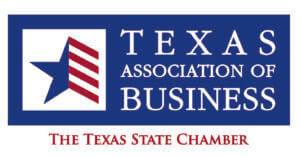Regulatory Consistency for Texas Employers’ Health Benefits is Key to Economic Growth
Businesses rely on consistent regulations to plan their operations, ensure steady growth, and continue to attract and retain a top-quality workforce by giving their employees and their families the support they need. For 50 years, the Employee Retirement Income Security Act (ERISA) has shaped the landscape of employee benefits, providing clear requirements on transparency, administration, and enforcement to ensure that employees have greater certainty regarding benefits offered by their employers.
Regardless of where you live in America, if you are a private sector employee with a pension, a 401K, or health and pharmacy benefits, ERISA helps you receive what your employer has promised you. ERISA is not just a legal framework – it is a cornerstone for economic stability that provides employers with uniformity across all 50 states. This consistency is a linchpin for businesses operating on a national scale, deterring any state-level regulations that might disrupt their operations.
In Texas, regulatory consistency is vital for our businesses’ operations. Our regulatory environment is a key element of the ‘Texas miracle’, bringing over 50 Fortune 500 companies to the Lone Star State. The business community is keenly aware that any measures that hamper our ability to compete with the other 49 states will hurt our ability to recruit qualified employees to fill the world-class jobs we are creating.
In recent years, there has been a concerning trend where certain state lawmakers have disregarded federal ERISA law, attempting to introduce legislation that either overrides or circumvents it. For instance, last year in Texas, there was a proposal that aimed to preempt ERISA law, potentially harming Texas employers’ ability to provide affordable health care benefits and impacting their bottom line.
Such efforts to expand state-level policies beyond the federal mandate of ERISA not only breach legal boundaries but also impose significant financial and operational burdens on employers. These measures threaten to increase costs for businesses, restrict flexibility in benefit offerings, and ultimately transfer these burdens onto employees. If implemented, these changes would undercut Texas’ reputation as a business-friendly haven, which has been crucial in attracting diverse companies across industries and fostering an environment conducive to innovation.
Recent conversations on healthcare regulation at the legislative and state agency level carry profound implications for our state’s economic trajectory. State leaders have the opportunity to reaffirm the preeminence of ERISA when it comes to regulating employee benefits. We encourage them to stand with the business community in confirming that additional layers of state regulation are unnecessary and counterproductive.
Businesses across Texas are resolute in their commitment to providing quality, affordable healthcare benefits to their employees, locally and nationwide. However, increased regulatory burdens threaten to undermine these efforts. In an era where businesses are already grappling with escalating healthcare costs, imposing further regulatory complexities would exacerbate these challenges, hindering their ability to expand and create new jobs. Recent projections of rising healthcare costs in 2024 underscore the urgency of preserving regulatory uniformity as provided by ERISA, which has historically enabled businesses to mitigate costs and maintain competitive advantage.
We appreciate that Governor Abbott, Lieutenant Governor Patrick, Attorney General Paxton, Comptroller Hegar and many leaders in the Legislature have been stalwart advocates for Texas’ pro-business environment, recognizing that regulatory clarity and minimal government interference are essential for sustained economic prosperity. Publicly upholding the consistency provided by ERISA will safeguard Texas’ economic vitality and reinforce our appeal as a premiere destination for businesses’ investments and growth.
By championing regulatory stability, Texas can continue to lead by example, demonstrating to the nation that a uniform, business-friendly environment is synonymous with economic resilience and growth. As we navigate the complexities of healthcare regulation in the coming year, let us prioritize policies that align with the best interests of both businesses and citizens.
###
